Basic Needs & Safety
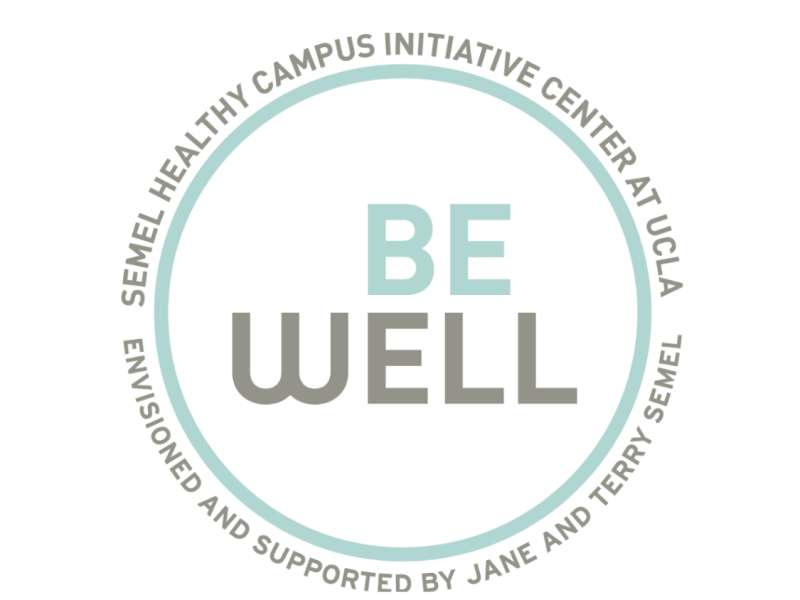
UCLA Semel HCI: Fire Disaster Resource List
The Semel Healthy Campus Initiative Center provides access to important documents and resources related to the 2025 Los Angeles fires, including emergency response plans, evacuation procedures, and safety guidelines for students, faculty, and staff.
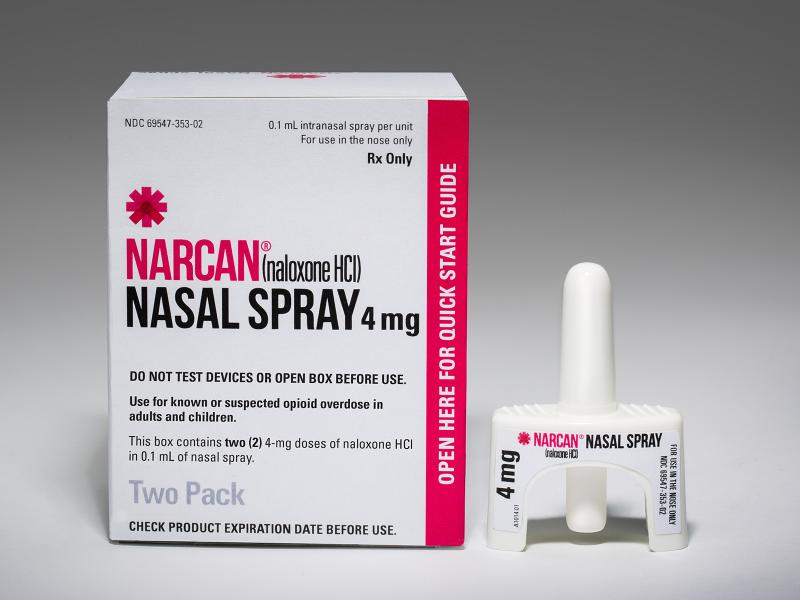
UCLA Narcan Distribution Project
The UCLA Narcan Distribution Project is committed to providing students and staff with free access to Narcan (the brand name for the generic medication naloxone), an easy-to-use, life-saving medication used to treat opioid overdoses. The program aims to help lower the occurrence of opioid-related overdoses, reduce the stigma surrounding substance use, and to promote a safe and healthy UCLA community.
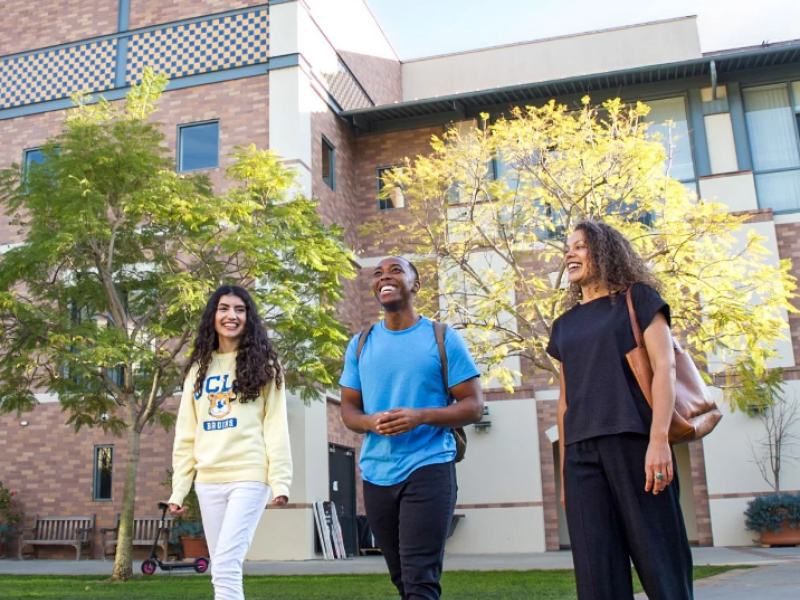
UCLA Residential Life
UCLA Residential Life creates safe, supportive, and inclusive living-learning communities that engage residents in the fostering of their academic success, personal growth, leadership development, and social responsibility. There are programs and partners that help make the Hill & all campus housing feel like home for our students.
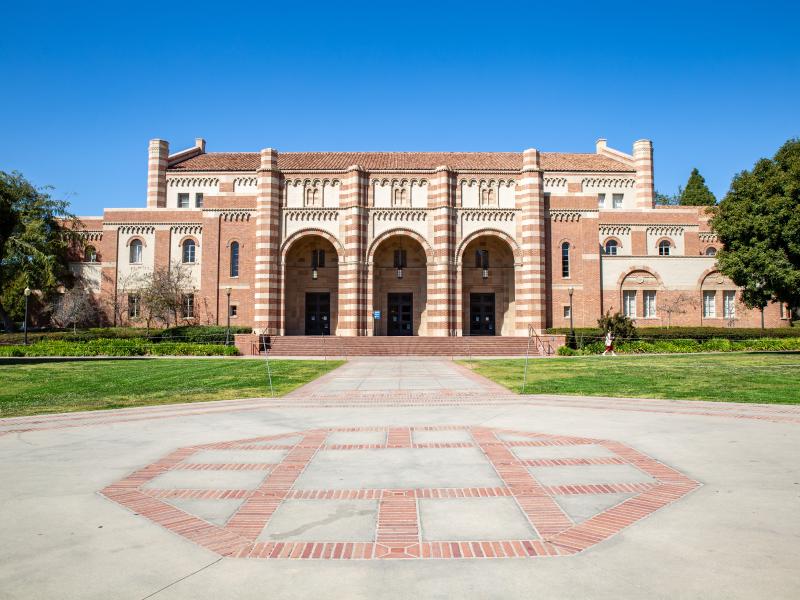
Community Programs Office (CPO)
The CPO strives to increase students from underserved communities' access to higher education, retention in the university, and graduation rates while also serving as a conscious effort in the community, working toward the empowerment of all people.
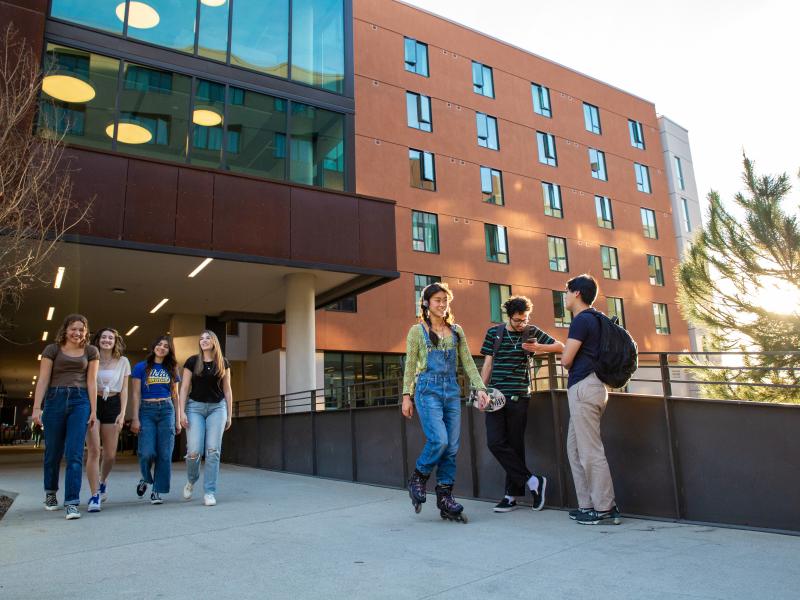
UCLA Housing
UCLA Housing oversees different university-owned housing options for undergraduate students, graduate students, and faculty members of the UCLA community. UCLA Residential Life creates safe, supportive, and inclusive living-learning communities that engage residents in the fostering of their academic success, personal growth, leadership development, and social responsibility.
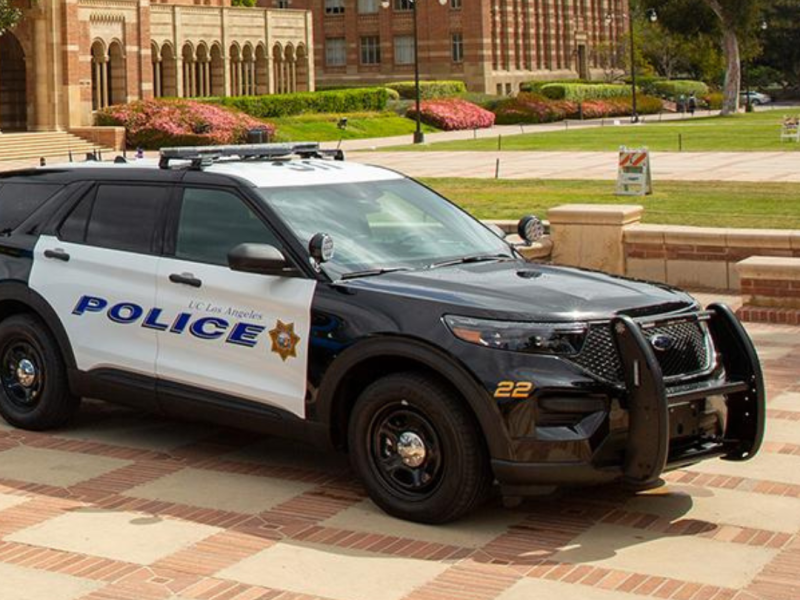
UCPD 24 Hour Dispatch Line
The UCLA Police Department Communications Center is staffed 24 hours a day by trained public safety dispatchers. The dispatchers receive calls from 9-1-1 and the non-emergency business lines, and assign police officers, firefighters, paramedics/EMTs, CSOs and parking enforcement officers as appropriate. Crimes occurring on the UCLA campus can be reported in person or by calling the UCLA Police Department any time of the day or night.
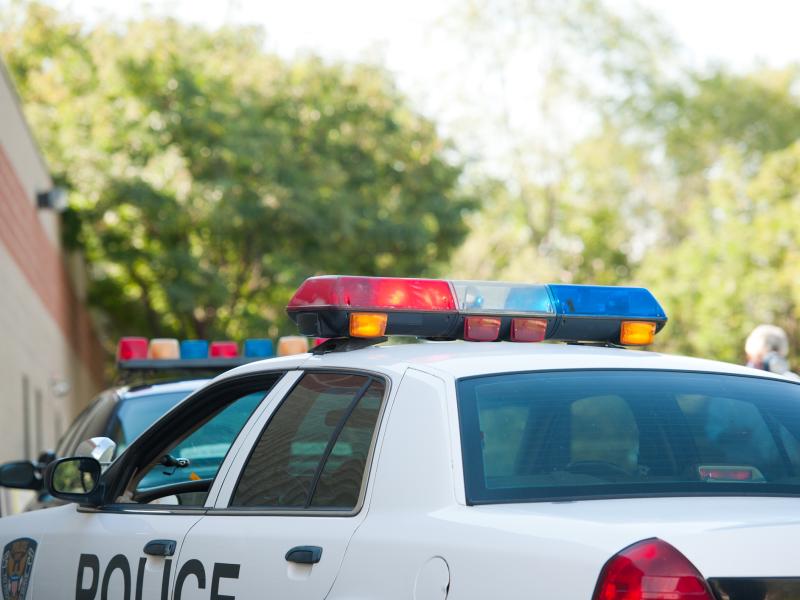
UCLA Police Department (UCPD)
The UCLA Police Department is a leader in providing progressive law enforcement services to a culturally diverse urban campus and its surrounding community. UCPD is dedicated to providing a safe and secure environment for teaching, research and public service. The department does this through patrol, rapid response to calls for service, investigations, education and implementation of preventative strategies. The work of the UCPD, grounded in a community policing philosophy, utilizes campus partnerships as the most effective approach for insuring a safe campus.

UCLA Equity, Diversity & Inclusion
UCLA's Office of Equity, Diversity and Inclusion (EDI) leads and advances strategies for enhancing equity, diversity and inclusion; protecting civil rights; and upholding dignity for all in our community.
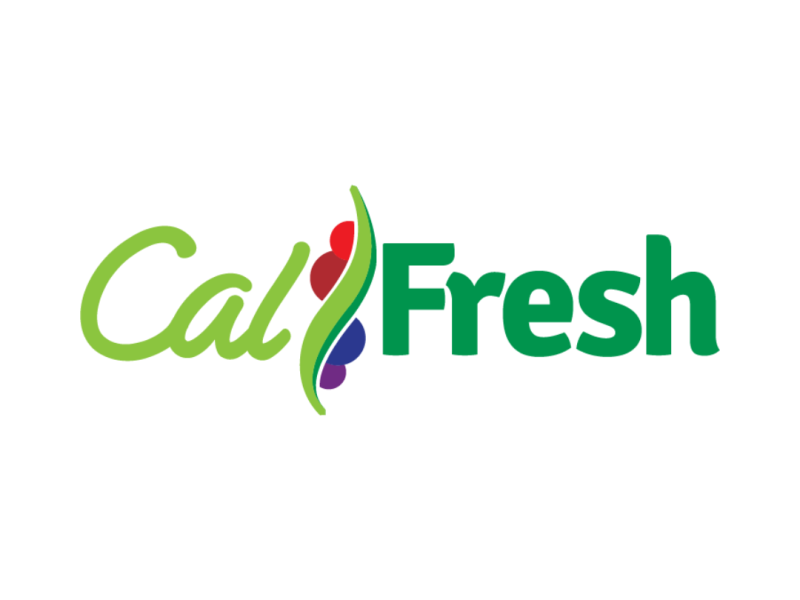
UCLA CalFresh Initiative
CalFresh is California's version of SNAP (the Supplemental Nutrition Assistance Program), a federally-funded food assistance program, colloquially known as "food stamps." Many students qualify for CalFresh and can receive up to $250/month to spend on groceries at places like Ralphs, Trader Joe's, Whole Foods, Target, and participating Farmers Markets.
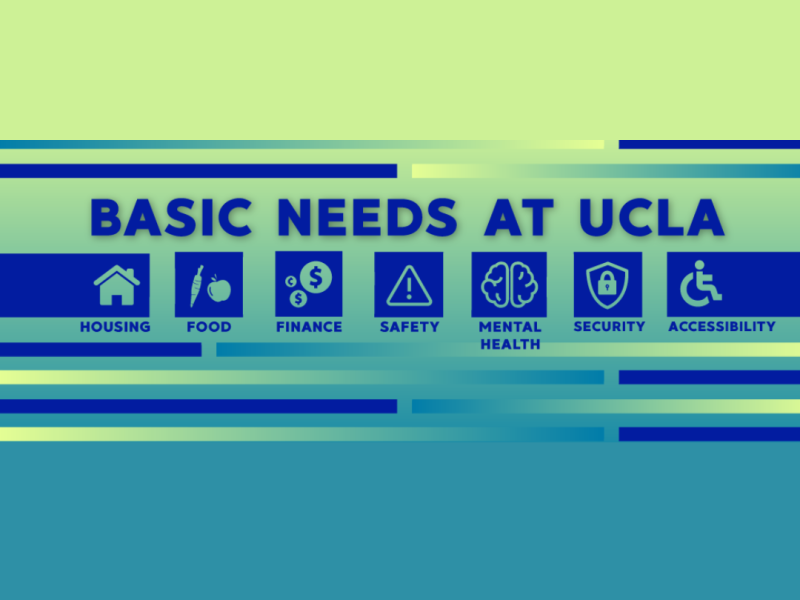
UCLA Basic Needs
UCLA Basic Needs aims to eliminate student hunger and homelessness, believing every student should not have to sacrifice their health and nutrition in pursuit of their degree. For more than one decade, UCLA Basic Needs has served as a lead advocate for food justice. Campus and community members are invited to join the effort to combating food and housing insecurity.
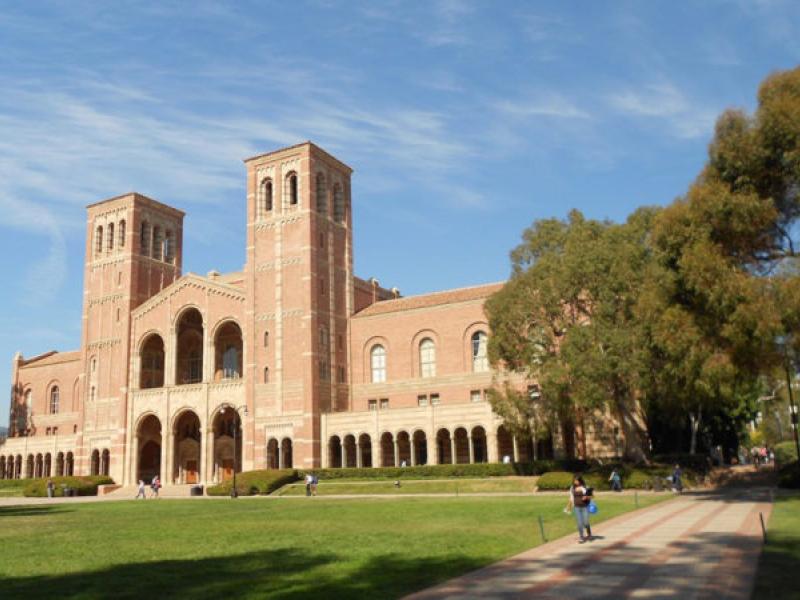
Title IX Office / Sexual Violence Prevention
The Title IX office is responsible for UCLA’s compliance with Title IX, including the policies and procedures to prevent and respond to gender discrimination, sexual harassment, and sexual violence. The Title IX Office is the designated office to investigate such claims filed against any member of the campus community.

Peer Counseling (SRC)
The UCLA Community Programs Office (CPO)’s Student Retention Center (SRC) provides peer counseling services for students who may experience academic, social, or cultural transitions at UCLA.
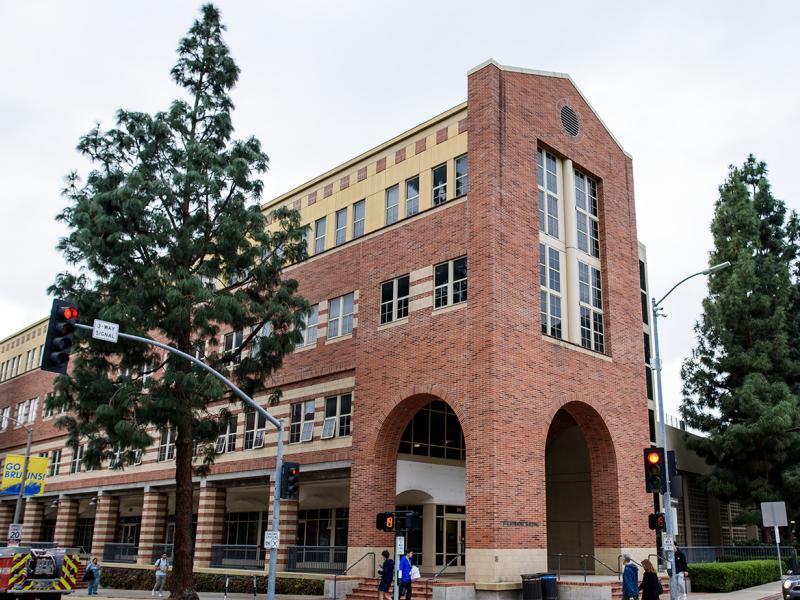
Ombuds Services
The Office of Ombuds Services is a place where members of the UCLA community–students, faculty, staff and administrators–can go for assistance in resolving conflicts, disputes or complaints on an informal basis. In order to afford visitors the greatest freedom in using its services, the Office is independent, neutral and confidential.
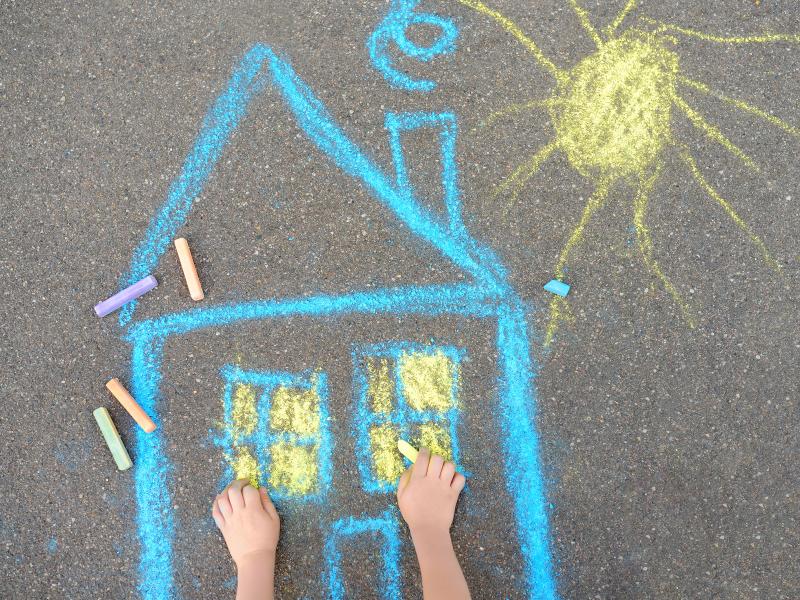
Little Bruins Clubhouse
The Little Bruin Clubhouse (LBC), funded by the Social Justice Referendum, provides free and reduced-cost evening youth programming for dependents at the Sunset Canyon Recreation Center for children ranging from diaper graduate to age 12. Student dependents may utilize the clubhouse at no cost.

LA County Consumer & Business Affairs
The LA County Department of Consumer and Business Affairs serves consumers, businesses, and communities through education, advocacy, and complaint resolution. Their mission is to create a fair and vibrant marketplace for consumers and businesses.
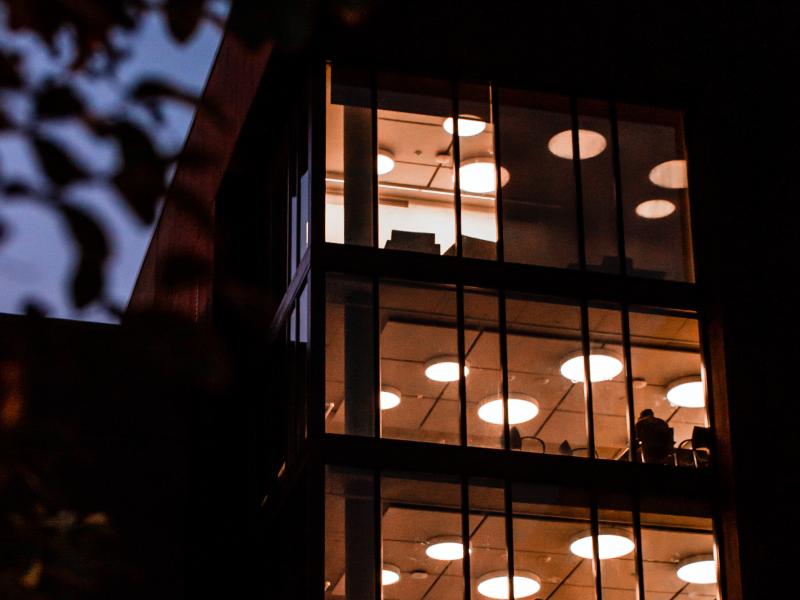
Evening Escort Van Service
The OSD Evening Van Service is part of the fleet of vehicles operated by Community Service Officers (CSOs) under the direction of the University Campus Police Department. Their round-trip route includes 26 pre-designated pick-up and drop-off spots on campus and in the area just west of the campus.
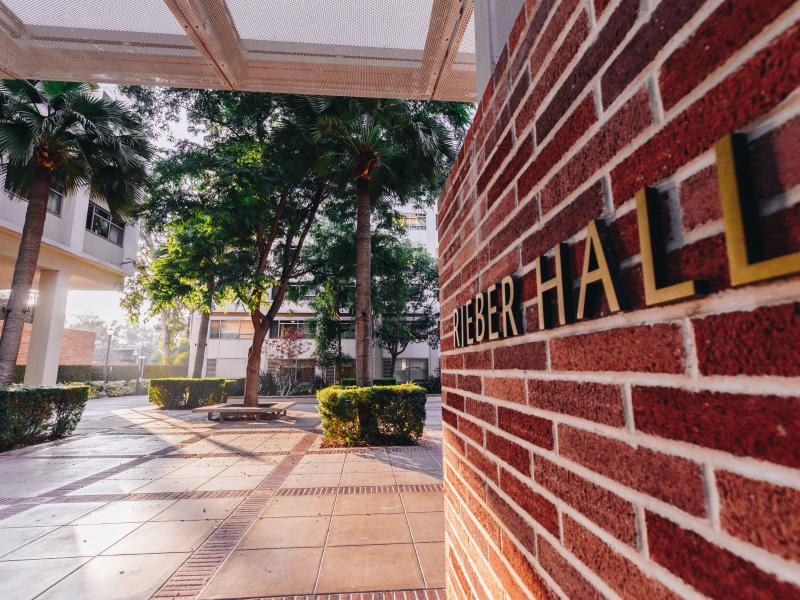
Emergency Housing
Immediate, emergency housing for students in crises. Students may have access to university-owned housing for up to 14 days.
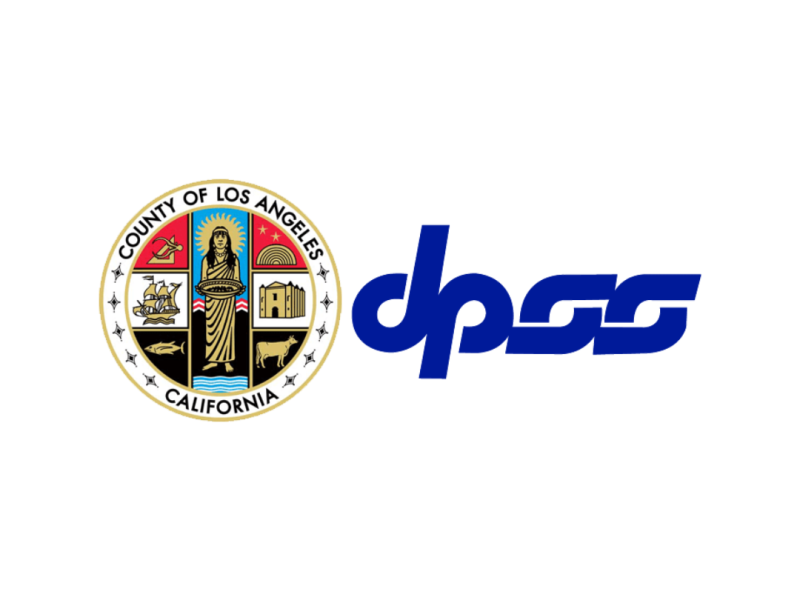
LA County Department of Public Social Services
The LA County Department of Public Social Services helps low-income families and individuals with a variety of programs and services for financial assistance through benefits programs, as well as housing and job assistance.

CPO Grocery Bundles
The UCLA Community Programs Office (CPO) Grocery Bundle Program provides students weekly grocery packages during Weeks 3-10, each academic quarter. Students must complete an application and submit required materials to participate in the program.
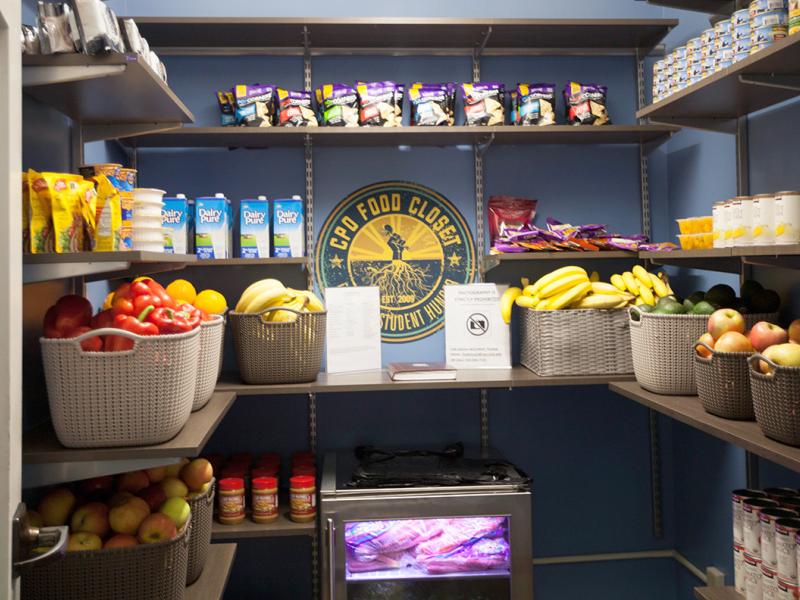
CPO Food Closet
The Community Programs Office (CPO) Food Closet provides free food for any UCLA student who may be experiencing hunger and/or struggling to attain food due to financial hardships.
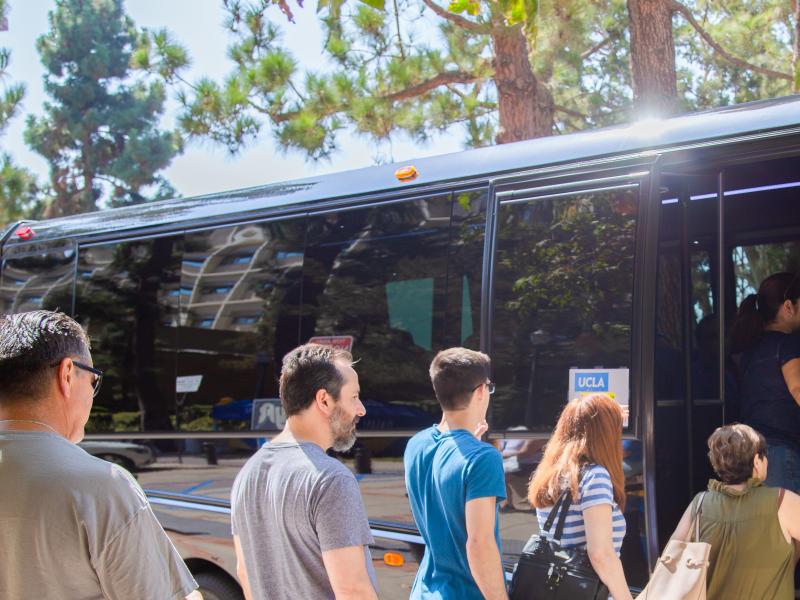
CPO Commuter Van Service
The UCLA Community Programs Office (CPO) Commuter Van Service provides commuting students a free, guaranteed safe ride home if they live within a 30-mile radius from campus.
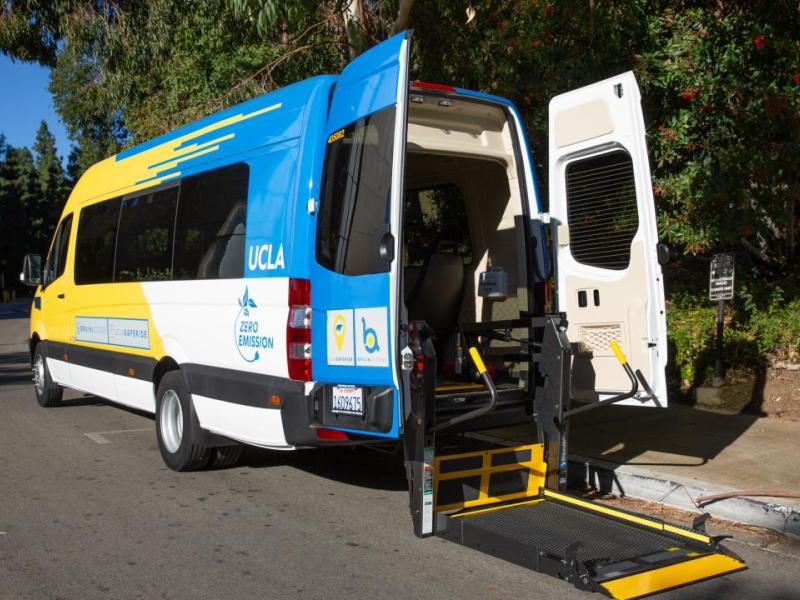
BruinAccess
BruinAccess is a complementary paratransit service provided by UCLA Transportation for qualified Bruins during academic weekdays from 7:30 a.m. to 6:00 p.m. They offer curb-to-curb rides from most points within and near campus. Seats are filled on a first-to-respond, first-served basis.
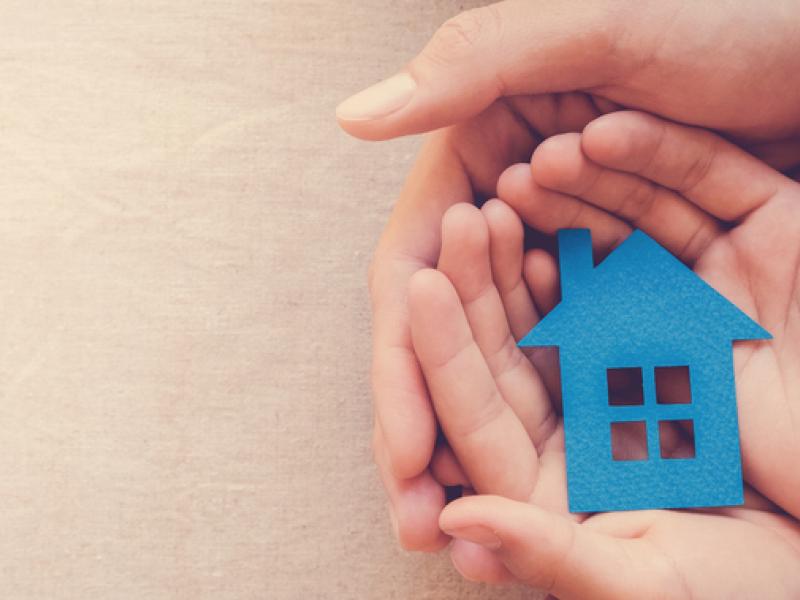
Bruin Shelter
Bruin Shelter is a UCLA undergraduate volunteer organization that operates a shelter for students experiencing houselessness in the greater Los Angeles area. They create a safe and supportive environment for all, provide basic resources, and help students pursue their academic goals.
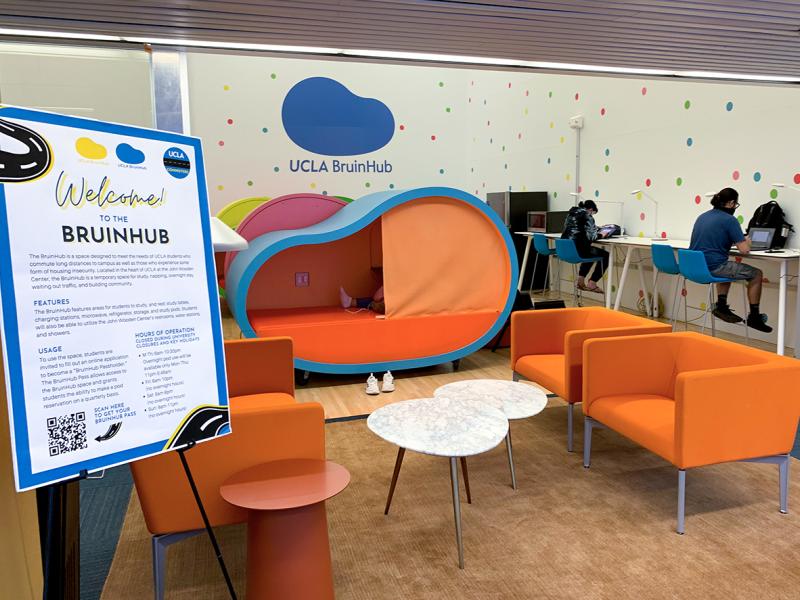
BruinHub
The BruinHub is a space for commuter students to wait out traffic, rest, study, store belongings, and access valuable information and resources. As an initiative of cityLAB, administrators and advocates at UCLA developed the hub to provide spaces of rest and community for students with long and extreme commutes and students experiencing housing insecurity. Located in the heart of campus at the John Wooden Center, the BruinHub is conceived as a 24/7 on-campus space for commuting students.
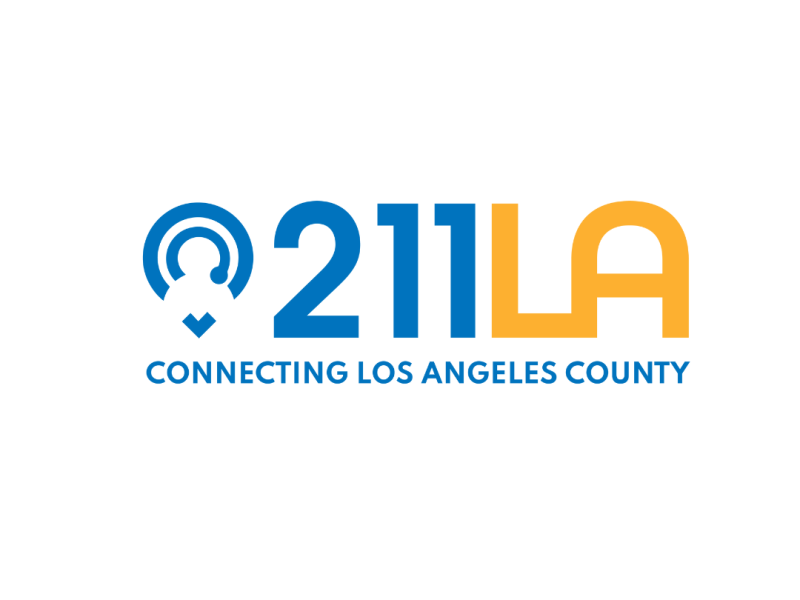
211 LA County
211 LA (or 211 LA County) is the hub of health, human, and social services for community members and organizations in Los Angeles County. They can refer individuals to healthcare services, connect people with housing and food resources, and link people to job, education, and financial support programs. They have a 24 hour 2-1-1 call line that can connect you with someone to answer all of your immediate questions, and provide access to a community calendar filled with events.
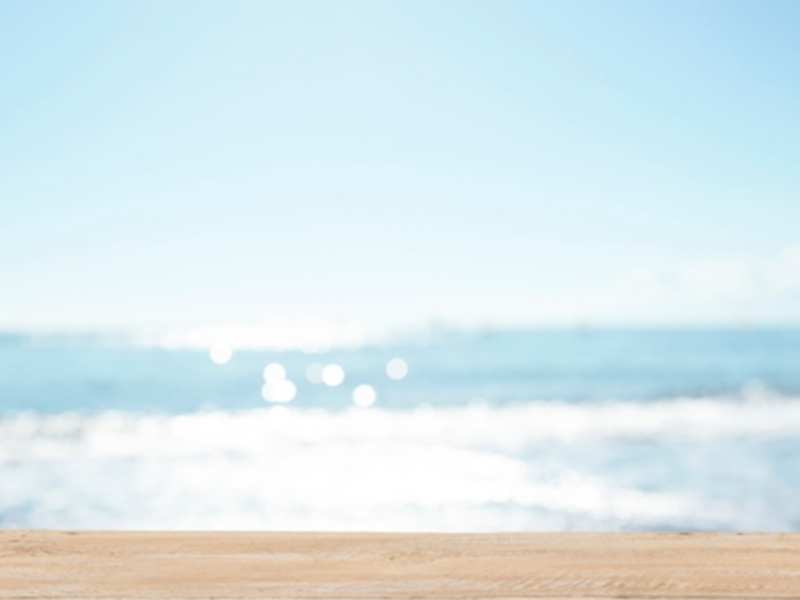
Rape Treatment Center
The Rape Treatment Center provides comprehensive treatment for sexual assault victims and their families, including 24-hour emergency medical care, forensic examinations and crisis counseling. Victims can receive highly specialized emergency medical care, forensic services, counseling, advocacy, and information about their rights and options to support them in making informed choices and decisions 24 hours a day, 7 days a week, free of charge.
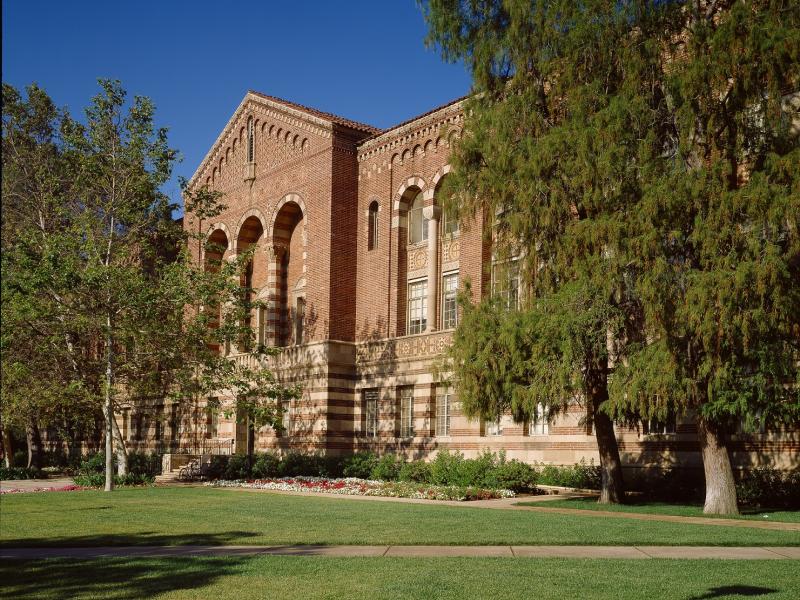
Discrimination Prevention Office (DPO)
The UCLA Discrimination Prevention Office (DPO) investigates reports of discrimination or harassment based on race, ancestry, national origin, religion, age, and other categories protected by law and University policy.